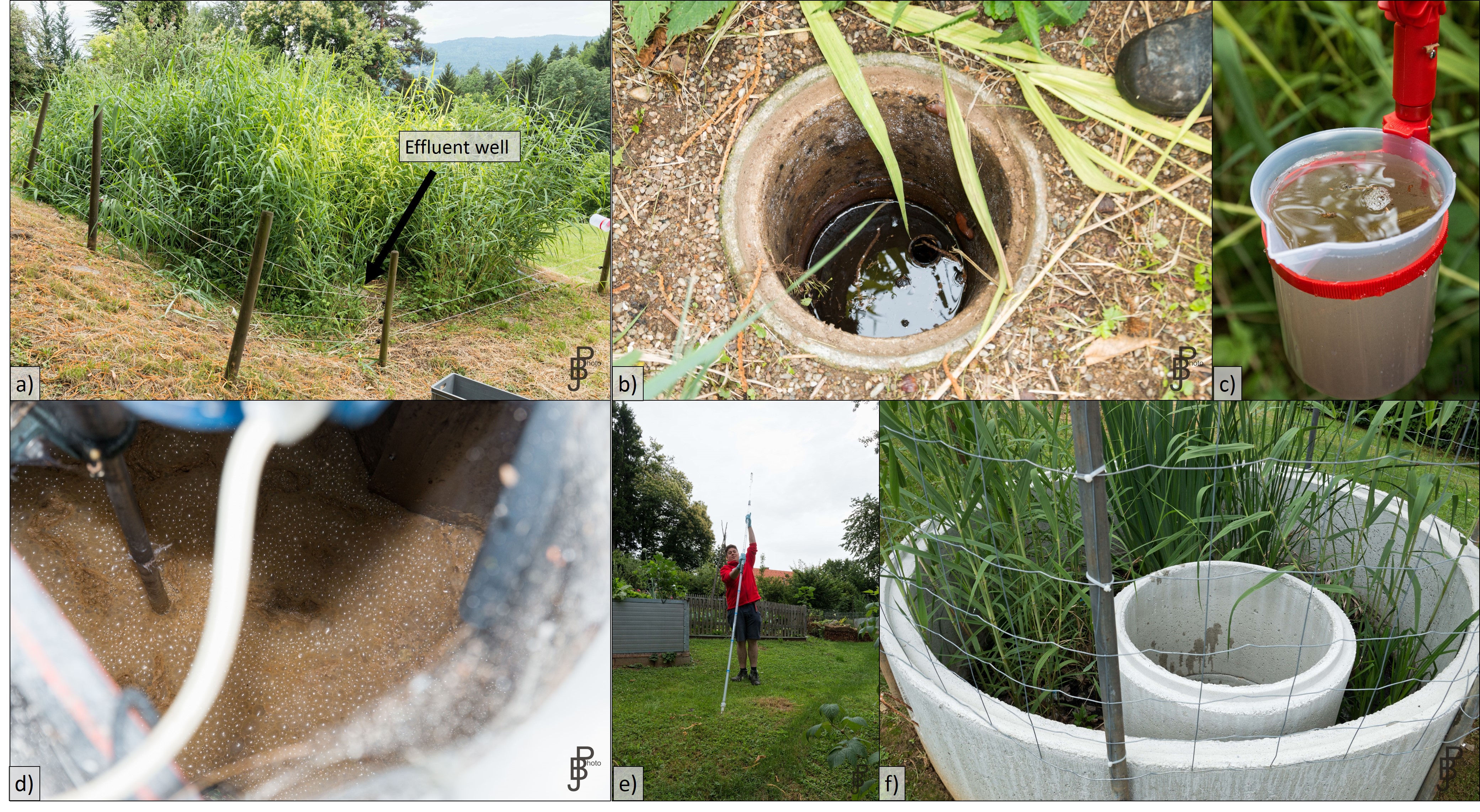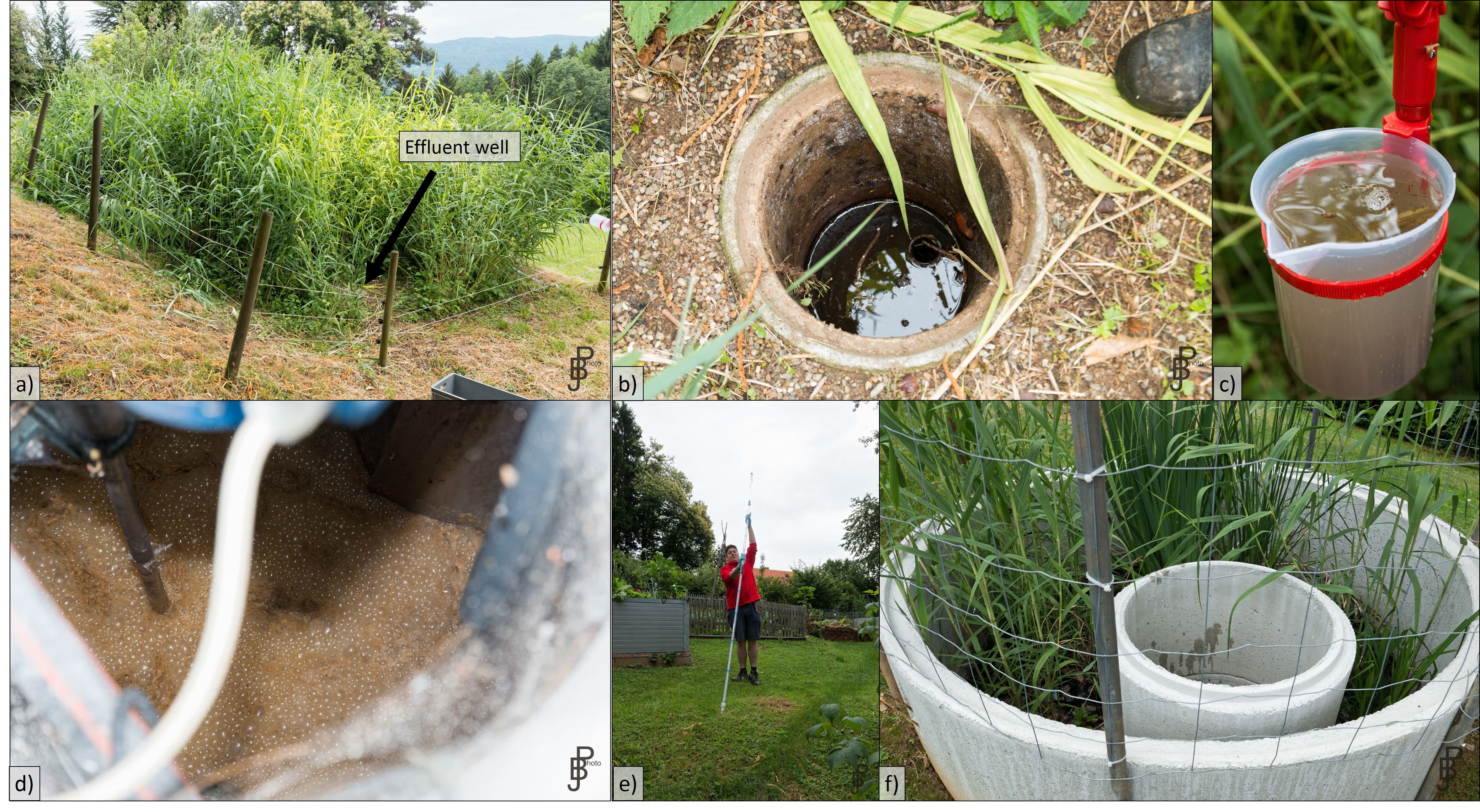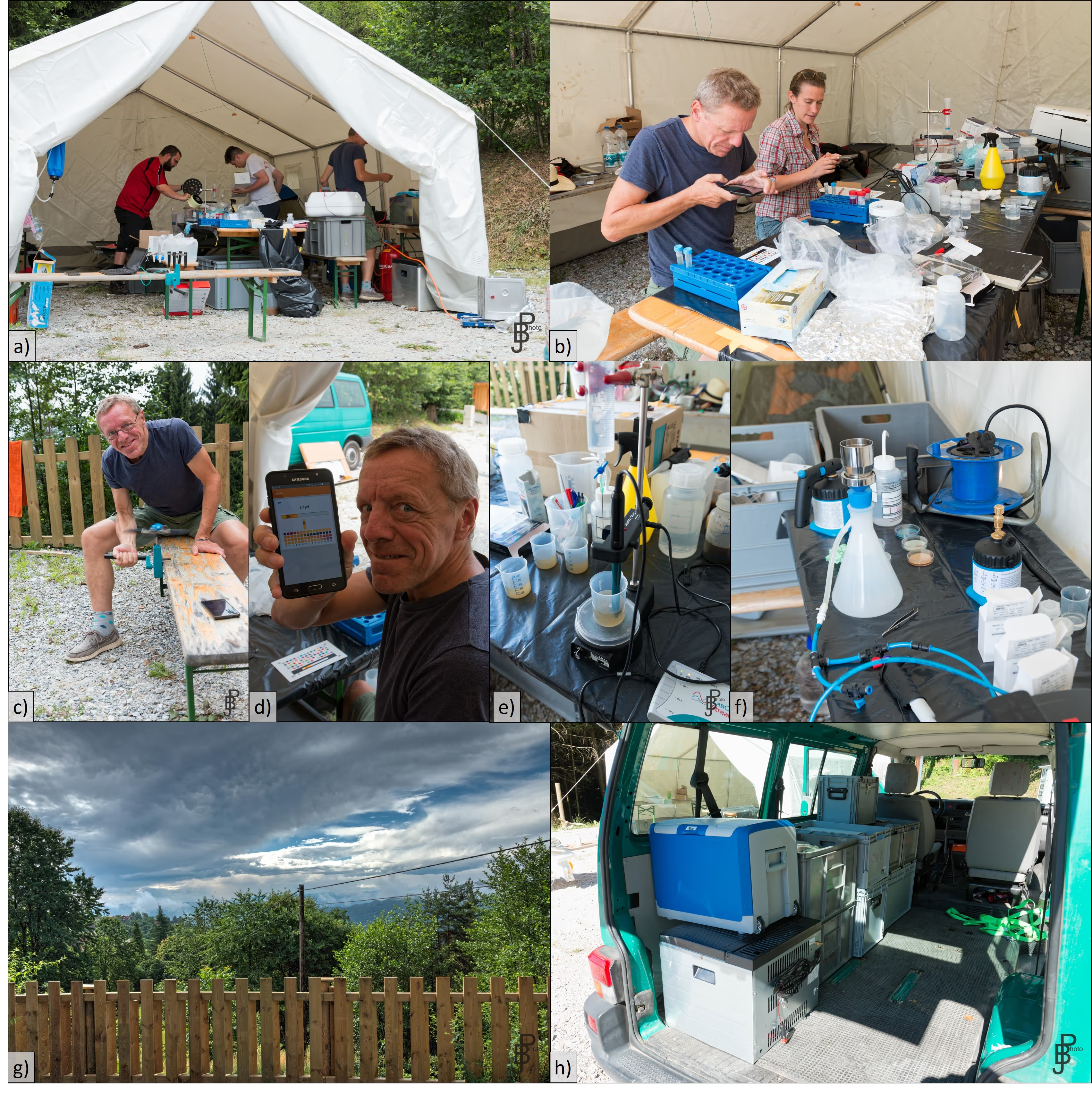Out of the Office-Into the Field

The Boku team (Marco and Johannes) of the MSQ project spent the 26th – 30th June in the field pre-field testing the developed prototype.
The MSQ field trail in Malawi in August is coming closer and closer. The prototype will be shipped from Austria in the next two weeks. Thus, the project team thought, it would be the best time to do a pre-field trail to assemble the whole lab, operate and test it and find any flaws.

The wetland test site was constructed for treating wastewater of a household in Styria (aprox. 250 km from IFA Tulln). The whole plant consisted of a collection tank outside of the house into which all wastewater flows. To inhibit any anaerobic degradation (bad smell, methane leakage) the tank is mixed and aerated in intervals. A time controlled submerged pump pumps the wastewater to a horizontal flow constructed wetland. The wetland is planted with reeds. The effluent is infiltrated after treatment into the properties lawn. These parts of the plant have been in operation for more than 20 years. A sludge stabilization/drying bed was added later on. The effluent of this bed is returned into the collection tank.

The prototype was packed into a VW-van and on Monday we drove to the test site. After three hours on the highway, we arrived at the test site and set up camp and the lab. The lab was set up in a large tent supplied Austrian Red Cross, which also served as living space. The rest of the day was spent with preparing the lab. We took the first samples of the plant on Tuesday morning. We sampled the collection tank, the effluent from the constructed wetland and the sludge stabilization bed. The samples were analysed on Tuesday and Wednesday. On Tuesday afternoon Magdalena and Georg from the Austrian Red Cross Headquarters WatSan Service Center joined Marco and me. Both of them are part of the Austrian Red Cross MSQ project team. They stayed for the night and got a practical introduction to the lab work done with the prototype.
A second set of samples were taken on Wednesday morning and the analysis took until Friday morning. Packing of the prototype started on Thursday evening and we left the test site returning to IFA-Tulln on Friday morning after finishing the last bacteriological analysis (counting the colony forming units).

After this pre-field trial, the field lab prototype was cleaned, restocked and prepared for transport to Malawi. In the first week of July we handed the prototype over to the Austrian Red Cross for shipment.
The week resulted in three major outcomes.
- Equipment wise the prototype worked. We had no major breakdowns.
- During the week, we collected a list of lessons learned. Most of the list was processed the following week
- The monitoring of the constructed wet land resulted in reasonable results. The degradation of bacteriological and chemical freights were shown in the analytical results.
Special thanks for a lot of support and help go to
- Karl Weidhofer, owner of the constructed wetland and camp site
- Austrian Red Cross Headquarters, National Disaster Management
Author: Johannes Bousek, University of Natural Resources and Life Sciences.
Stay updated
Sign up for our newsletter to receive regular updates on resources, news, and insights like this. Don’t miss out on important information that can help you stay informed and engaged.
Explore Elrha
Learn more about our mission, the organisations we support, and the resources we provide to drive research and innovation in humanitarian response.


.png)